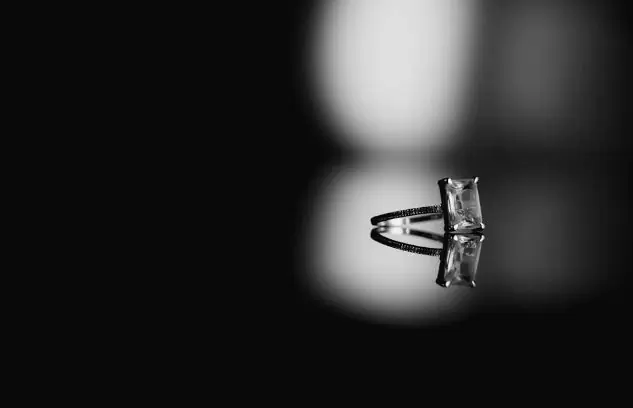How To Qualify For Eyelid Surgery
Eyelid surgery, also known as blepharoplasty, is a type of cosmetic surgery that aims to improve the appearance of the upper and lower eyelids by removing excess skin and fat. This procedure can help patients achieve a more youthful, refreshed look by reducing sagging or puffiness around the eyes. Also, eyelid surgery may be performed for medical reasons, such as correcting vision problems caused by drooping eyelids.
To qualify for eyelid surgery, a patient should generally have good overall health and realistic expectations about the procedure’s results. It is important to note that this surgery is not typically recommended for individuals who smoke or have certain medical conditions that increase their risk of complications during or after surgery. Additionally, patients considering eyelid surgery should schedule a consultation with an experienced plastic surgeon to discuss their goals and determine whether they are good candidates for the procedure.
Overall, eyelid surgery can benefit those looking to rejuvenate their appearance or address functional issues related to their eyes. By carefully working with a qualified surgeon and following all pre- and post-operative instructions, patients can achieve safe and satisfying results from this popular cosmetic procedure.
How to prepare for eyelid surgery
Before undergoing eyelid surgery, it is important to ensure that you qualify for the procedure. Generally, individuals with excess skin on their upper or lower eyelids, puffiness, or bags under their eyes make good candidates for eyelid surgery. Those with medical conditions such as dry eye syndrome or glaucoma may need an ophthalmologist’s clearance before the procedure.
To prepare for eyelid surgery, it is advised to avoid smoking and alcohol consumption at least two weeks before the scheduled date of the procedure. It will help reduce the risk of complications during and after surgery. Additionally, patients are advised to stop taking blood-thinning medications such as aspirin and ibuprofen a few weeks before.
It is also important to arrange for someone to drive you home after the procedure since anesthesia can affect your judgment and coordination. These tips can help ensure a smooth preparation process leading up to your eyelid surgery.
How to recover from eyelid surgery
Eyelid surgery, also known as blepharoplasty, is a cosmetic procedure that can help improve the appearance of your eyes. However, eyelid surgery has some risks and complications, like any surgical procedure. Recovery from eyelid surgery varies from person to person, depending on their overall health and the extent of the surgery.
To qualify for eyelid surgery, you must be healthy and have realistic expectations about the procedure’s outcomes. During a consultation with your surgeon or doctor, they will evaluate your medical history to ensure you are a suitable candidate for this type of surgery.
After eyelid surgery, it is important to follow post-operative instructions provided by your surgeon or doctor carefully. It includes getting plenty of rest and avoiding activities that may cause strain or pressure on your eyes, such as reading or watching TV for extended periods. During recovery, you should also avoid rubbing or touching your eyes to prevent infections or other complications. Most importantly, follow up with your doctor regularly until you fully recover from the operation.
What are the qualifications for eyelid surgery?
To qualify for eyelid surgery, patients need to meet specific criteria. The first qualification is that the patient must be in good health and have no medical conditions that may hinder the healing process or increase the risk of complications. It means that individuals with high blood pressure, heart disease, or diabetes may not be suitable candidates for the procedure.
Another qualification is having realistic expectations about what can be achieved through eyelid surgery. Patients must understand that while this procedure can significantly improve their appearance, it won’t completely change their look or eliminate all signs of aging around the eyes.
Lastly, age is important in determining if a patient qualifies for eyelid surgery. Generally speaking, candidates should be at least 18 before cosmetic surgery. However, most people who undergo eyelid surgery are usually in their late 30s to early 50s when excess skin and fat around the eyes become more noticeable. Overall, determining eligibility will depend on each case, and consultations with a qualified plastic surgeon will help determine whether someone is a good candidate for this procedure.
How long does it take to recover from eyelid surgery?
The recovery time for eyelid surgery typically varies from patient to patient. However, most people can expect to take off work and other normal activities for about ten days after the procedure. During this time, you must avoid strenuous activities that may increase blood pressure and cause bleeding or swelling.
It is important to note that each person heals at a different rate, so some may require more time off than others. Patients should also be prepared for some discomfort, bruising, and swelling during the first few days following their surgery. Your surgeon will provide detailed instructions on how to care for yourself during recovery.
Overall, it is recommended that patients give themselves ample time to rest and heal properly before returning to their routine. It means allowing enough downtime until all signs of swelling have subsided and any incisions have fully healed. Following your surgeon’s guidance closely during this process can ensure a successful outcome from your eyelid surgery with minimal risks or complications.
FAQs
Can I get eyelid surgery if I have a medical condition?
If you have a medical condition affecting your eyes or general health, you may not be eligible for eyelid surgery. Discussing any preexisting conditions with your surgeon before the procedure is important. Additionally, certain medications can cause complications during and after surgery, so make sure to provide a comprehensive list of all medications that you are taking.
What kind of anesthesia is used during eyelid surgery?
Eyelid surgery can be performed under local anesthesia with oral sedation or general anesthesia. Local anesthesia involves numbing the area around the eyes with injections or topical creams. With oral sedation, medication is given to help you relax and calm down before the procedure. General anesthesia involves putting you ultimately to sleep during the whole operation.
How long does it take to recover from eyelid surgery?
The recovery process varies depending on each person’s individual experience and how extensive their procedure was. You must rest for at least a few days after your procedure and avoid strenuous activities for several weeks. The swelling and bruising usually subside within two weeks, but it may take up to six months for complete healing and optimal results. It is important to follow your surgeon’s post-operative instructions to ensure a successful recovery without complications.










